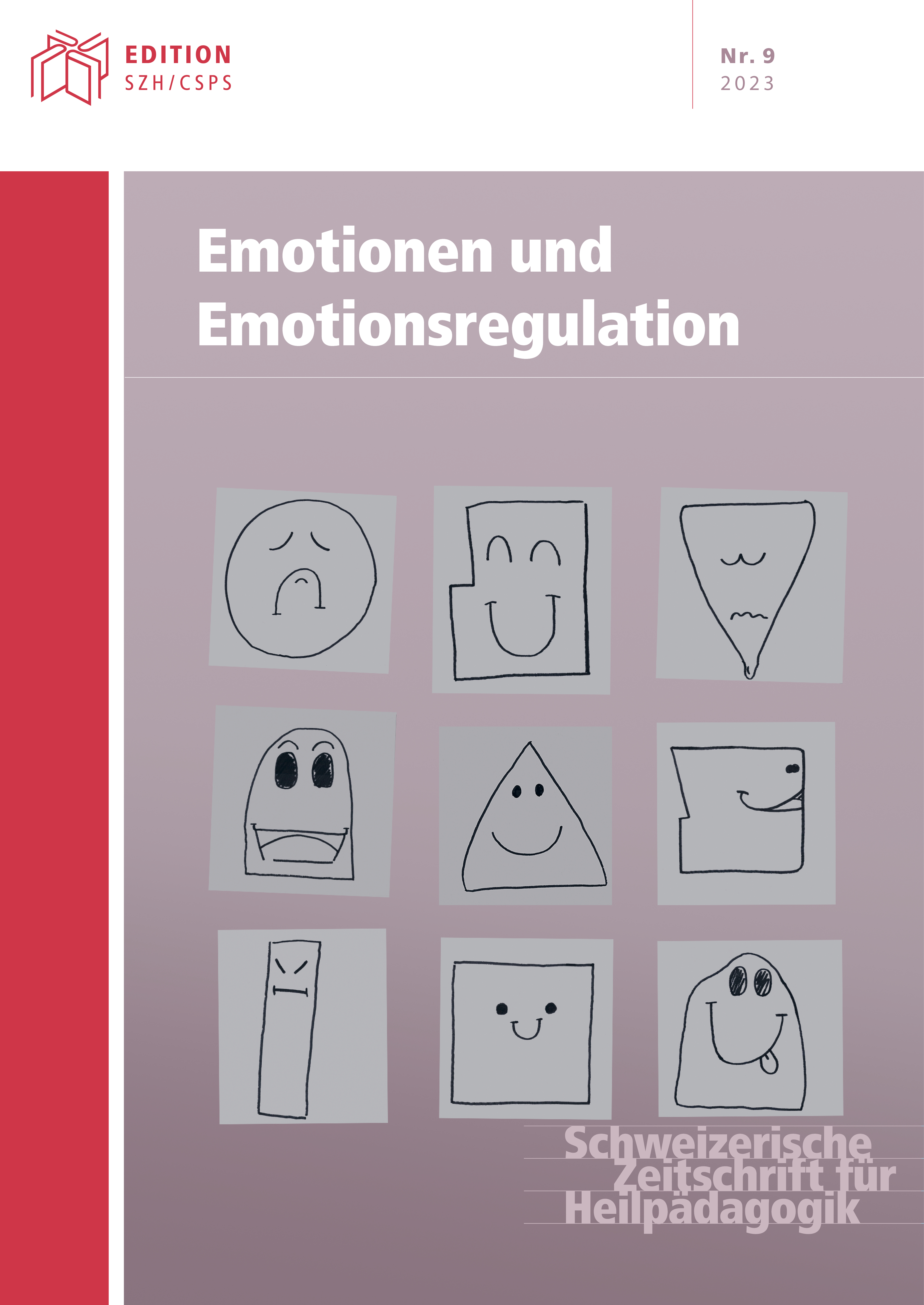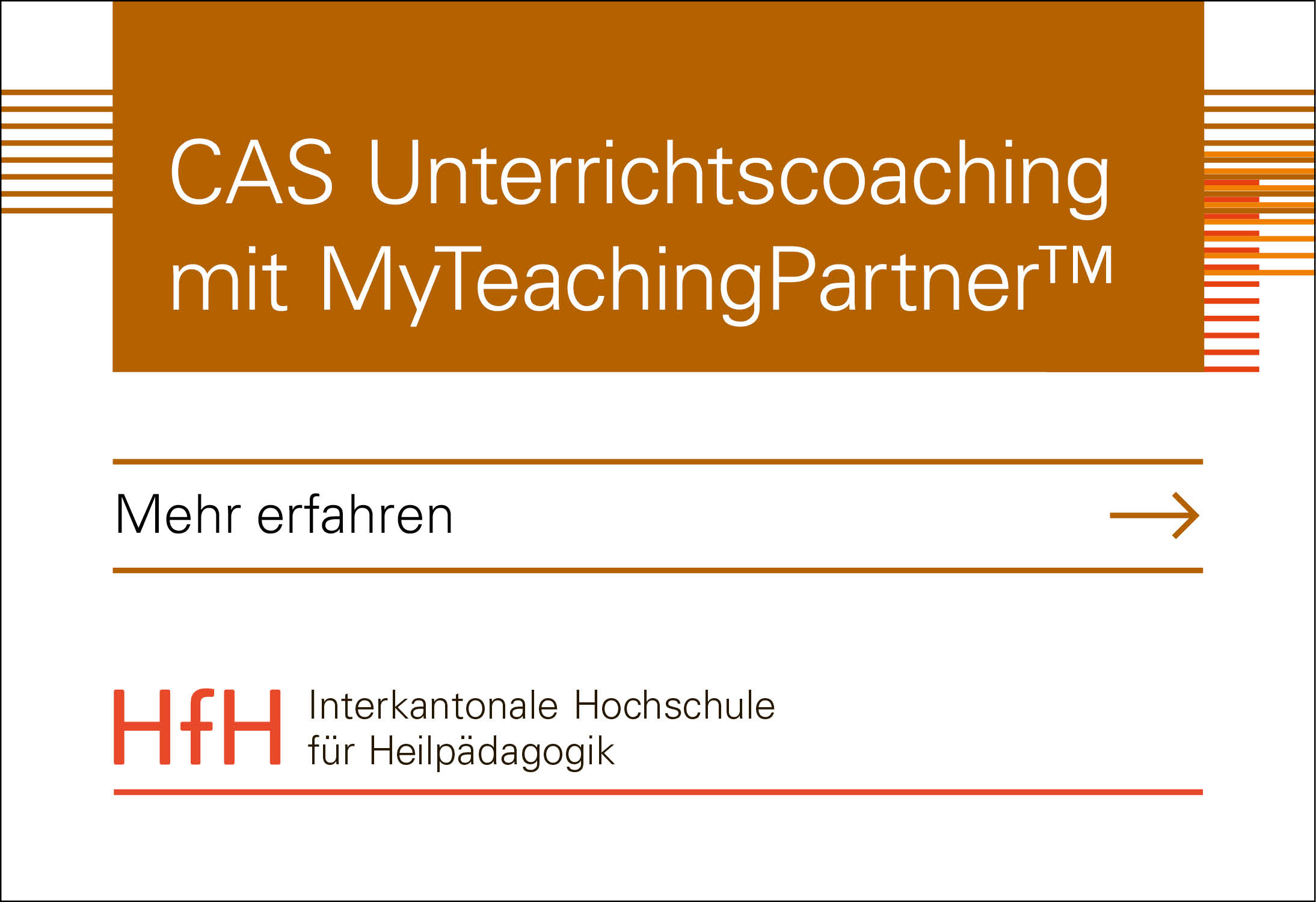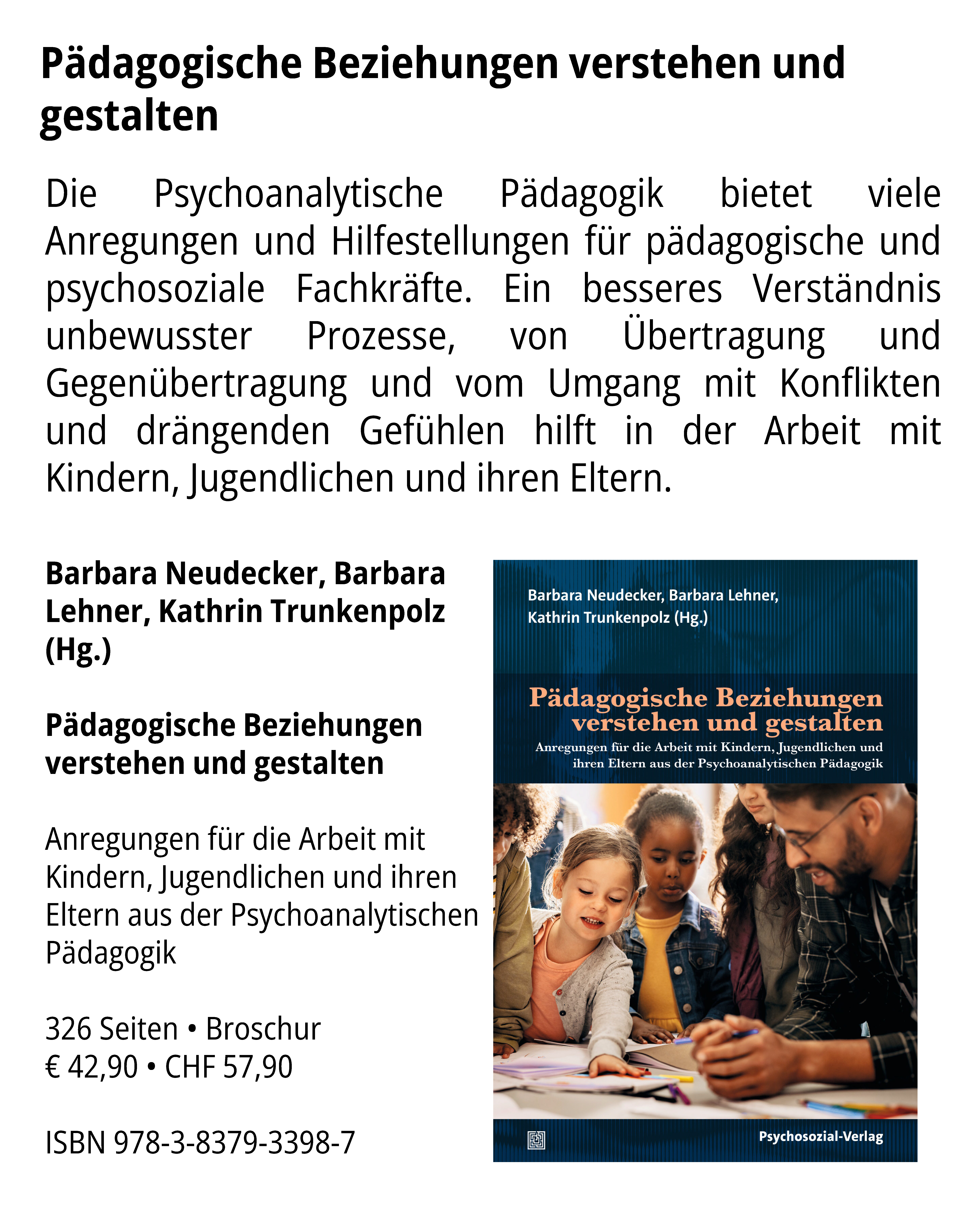Emotionscoaching für eine gesunde sozio-emotionale Entwicklung
Das Programm «Tuning in to Kids – sich in Kinder einfühlen (TIK)»
DOI :
https://doi.org/10.57161/z2023-09-03Mots-clés :
développement socio-émotionnel, éducation, émotion, orientation, relation parents-enfantRésumé
Les compétences émotionnelles jouent un rôle important, car elles permettent à l’être humain de se développer sainement. Apprendre à gérer les émotions de manière constructive peut se faire grâce au coaching émotionnel. Selon Gottman, le coaching émotionnel est au cœur du programme parental australien « Tuning in to Kids » (TIK – À l’écoute des enfants). L'objectif principal du TIK est que les parents prennent conscience des méta-émotions. Cet article décrit les cinq étapes du coaching émotionnel. Outre les conditions-cadres, il présente également des résultats d’une évaluation et les développements ultérieurs prévus concernant le TIK.
Références
Baeschlin, K., Baeschlin, M. & Wehrli, M. (1995). Der lösungsorientierte Ansatz als Handlungsmodell für den pädagogischen Alltag eines Schulheims. Vierteljahresschrift für Heilpädagogik und ihre Nachbargebiete VHN, 64, 182–193.
Bambara, L. M., Nonnemacher, S. & Kern, L. (2009). Sustaining school-based individualized positive behaviour support. Journal of Positive Behaviour Interventions, 11 (3), 161–176. https://doi.org/10.1177/1098300708330878
Bjørk, R. F., Bølstad Karevold, E., Pons, F. & Havighurst, S. S. (2021). Testing TIK (Tuning in to Kids) with TEC (Test of Emotion Comprehension): Does enhanced emotion socialization improve child emotion understanding? Journal of Applied Developmental Psychology, 78 (2), 1–12. https://www.sciencedirect.com/science/article/pii/S0193397321001313?via%3Dihub101368
Burkhardt, S. C. A., Röösli, P. & Müller, X. (under revision). A first RCT of the Tuning in to Kids parenting program delivered online for improving emotion socialization and child behavior. Nature Scientific Reports.
Chan, R. F., Qiu, C. & Shum, K. K. (2021). Tuning in to kids: A randomized controlled trial of an emotion coaching parenting program for Chinese parents in Hong Kong. Developmental Psychology, 57 (11), 1796–1809. https://doi.org/10.1037/dev0001258
Cole, P. M., Dennis, T. A., Smith-Simone, K. E. & Cohen, L. H. (2009). Preschoolers’ emotion regulation strategy understanding: Relations with emotion socialization and child self‐regulation. Social Development, 18 (2), 324–352.
Denham, S. A., Bassett, H. H. & Wyatt, T. (2007). The socialization of emotional competence. In J. E. Grusec & P. D. Hastings (Eds.), Handbook of Socialization: Theory and Research (pp. 614–637). Guilford.
Edrissi, F., Havighurst, S. S., Aghebati, A., Habibi, M. & Arani, A. M. (2019). A pilot study of the Tuning in to Kids parenting program in Iran for reducing preschool children’s anxiety. Journal of Child and Family Studies, 28, 1695–1702. https://doi.org/10.1007/s10826-019-01400-0
Ginott, H. G. (1965). Between parent and child: new solutions to old problems. Macmillan.
Gottman, J. M. & DeClaire, J. (1997). Raising an emotionally intelligent child. Simon & Schuster Paperbacks.
Gottman, J. M., Katz, L. F. & Hooven, C. (1996). Parental meta-emotion philosophy and the emotional life of families: Theoretical models and preliminary data. Journal of Family Psychology, 10 (3), 243–268.
Havighurst, S. S., Wilson, K. R., Harley, A. E., Kehoe, C., Efron, D. & Prior, M. R. (2012). «Tuning into Kids»: Reducing young children’s behaviour problems using an emotion coaching parenting program. Child Psychiatry and Human Development, 44 (2), 247–264. https://doi.org/10.1007/s10578-012-0322-1
Kehoe, C. E. (2023). The Tuning in to Kids whole school approach. Melbourne.
Müller, X. & Sigrist, M. (2019). Bedarfsanalyse zum Umgang mit Verhaltensauffälligkeiten. https://www.hfh.ch/sites/default/files/old/documents/Dokumente_Expertenwissenonline/Verhalten/Bedarfsanalyse_IVE_def.pdf
Otterpohl, N., Buchenau, K., Havighurst, S., Stiensmeier-Pelster, J. & Kehoe, C. (2020). Tuning in to Kids. Ein Elterntraining zur Förderung der Emotionssozialisation im Vorschulalter. Kindheit und Entwicklung, 29 (1), 52–60. https://doi.org/10.1026/0942-5403/a000300
Téléchargements
Publiée
Comment citer
Numéro
Rubrique
Licence
© Susan C. A. Burkhardt 2023

Ce travail est disponible sous la licence Creative Commons Attribution 4.0 International .








